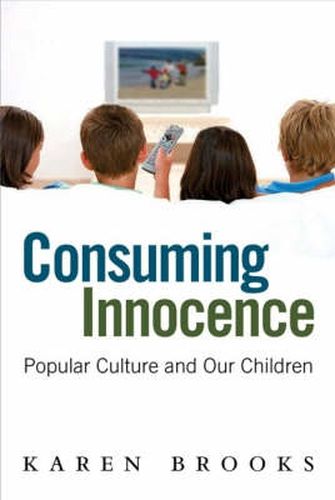Readings Newsletter
Become a Readings Member to make your shopping experience even easier.
Sign in or sign up for free!
You’re not far away from qualifying for FREE standard shipping within Australia
You’ve qualified for FREE standard shipping within Australia
The cart is loading…






have with popular culture. Without blaming children or parents, Consuming Innocence considers the role of celebrities, fads, technology, fashion, school, the media and, most importantly, parents, and the part they all play in creating children’s ideas of themselves.Chapters focus on specific elements of global popular culture, from the corporations that target kids and promote sexuality, to toys, TV shows like The Simpsons, film, celebrities, internet sites, children’s fashion and parenting practices. It looks realistically at what has been described as the crisis of stolen childhoods, but with empathy, understanding and humour.Consuming Innocence shows how parents, grandparents, teachers and other concerned adults can educate themselves about popular culture and the messages it gives. By doing this, we can pro-actively inform children and teenagers about popular culture, and support and protect them when necessary.
$9.00 standard shipping within Australia
FREE standard shipping within Australia for orders over $100.00
Express & International shipping calculated at checkout
have with popular culture. Without blaming children or parents, Consuming Innocence considers the role of celebrities, fads, technology, fashion, school, the media and, most importantly, parents, and the part they all play in creating children’s ideas of themselves.Chapters focus on specific elements of global popular culture, from the corporations that target kids and promote sexuality, to toys, TV shows like The Simpsons, film, celebrities, internet sites, children’s fashion and parenting practices. It looks realistically at what has been described as the crisis of stolen childhoods, but with empathy, understanding and humour.Consuming Innocence shows how parents, grandparents, teachers and other concerned adults can educate themselves about popular culture and the messages it gives. By doing this, we can pro-actively inform children and teenagers about popular culture, and support and protect them when necessary.